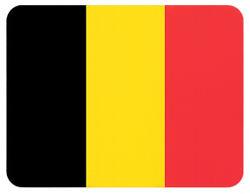
What is the Belgian education system?
The Belgian education system is known for its rigorous structure, its three language networks (French, Dutch and German), and the pedagogical freedom offered to schools. It follows a clear progression from preschool to higher education, with well-defined stages.
In Belgium, school is compulsory from ages 5 to 18, but most children start at 2.5 years old in preschool (classe d’accueil). The system is divided into levels, each with specific learning goals, diplomas, and transition opportunities.
In Brussels, Dutch classes are part of the curriculum from primary school onward in all French-speaking schools.

Belgian education system: levels, ages, and diplomas
Preschool – Ages 2.5 to 6
Preschool is not mandatory before age 5, but is highly recommended and widely attended.
It aims to develop social skills, motor abilities, language, emotional expression, and basic competencies in a structured yet playful environment.
> No formal assessment or diploma at this level.
Primary School – Ages 6 to 12
Primary education lasts 6 years and is divided into three 2-year cycles.
Core subjects include: French, mathematics, science, physical education, a foreign language (often Dutch or English), music, and the arts.
> Students undergo continuous assessment and take an external exam at the end of 6th year (called the CEB – Certificat d’Études de Base), required to progress to secondary school.
Secondary Education – Ages 12 to 18
Secondary school in Belgium lasts 6 years and is split into two 3-year stages (new structure since 2024):
- First stage (12–15): 3-year common core to consolidate the basics
- Second stage (15–18): first orientation and specialization based on interests and skills
At 15, students choose a study path:
- General (academic)
- Technical (transition or qualification)
- Artistic (arts education)
- Vocational (direct job preparation)
> At the end of secondary school (around age 18), students receive the Certificat d’Enseignement Secondaire Supérieur (CESS), required for access to higher education.
Higher Education – From Age 18
After secondary school, students may pursue:
- University colleges: more vocational (Bachelor)
- Universities: academic degrees (Bachelor, Master, PhD)
- Art colleges
Belgium follows the Bologna Process (LMD system):
- Bachelor’s degree (3 years)
- Master’s degree (1 to 2 years)
- PhD (3 years or more)
Why choose a Belgian school?
- High-quality public education
- Wide network of local schools
- Clear and well-structured system
- Specialization options based on student profiles
- Degrees recognized in Belgium and across Europe





